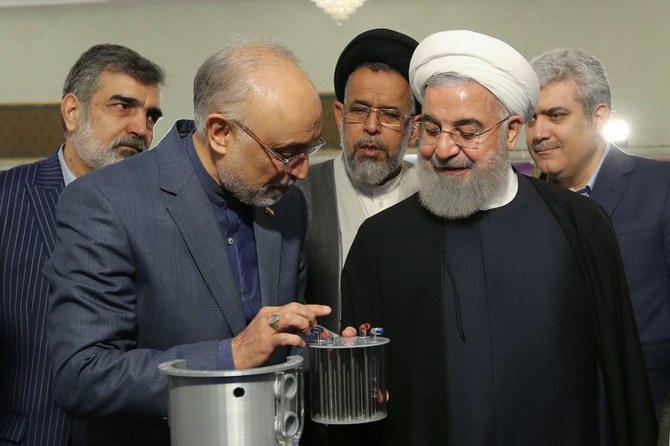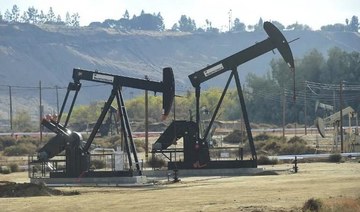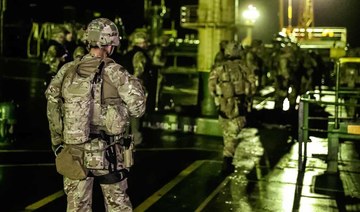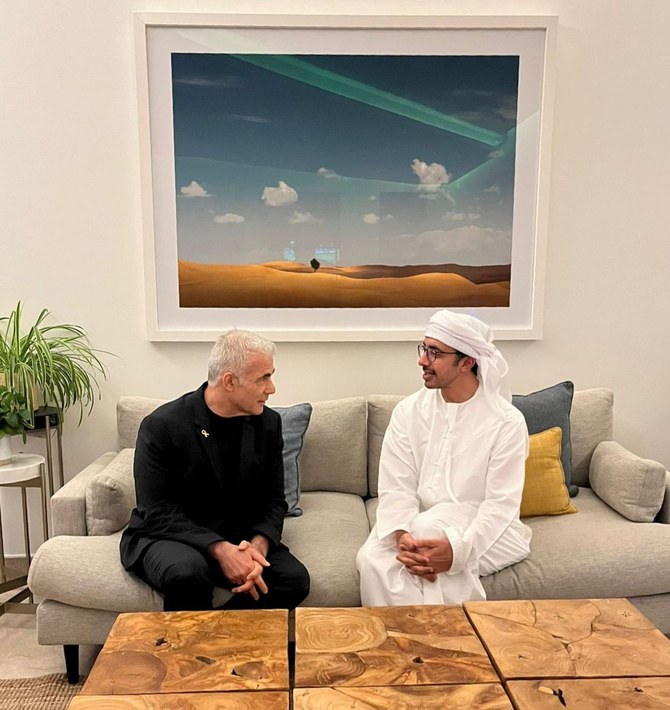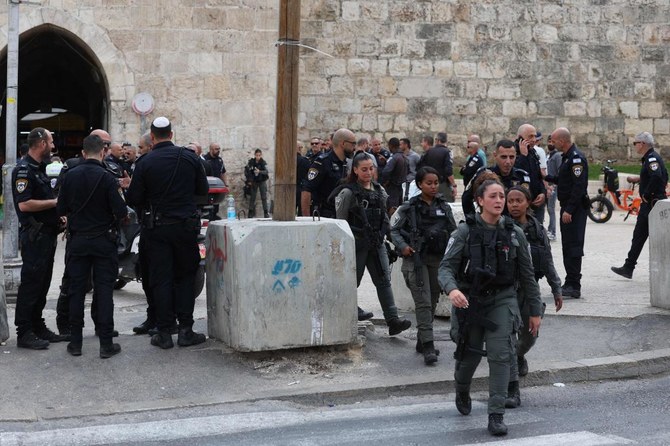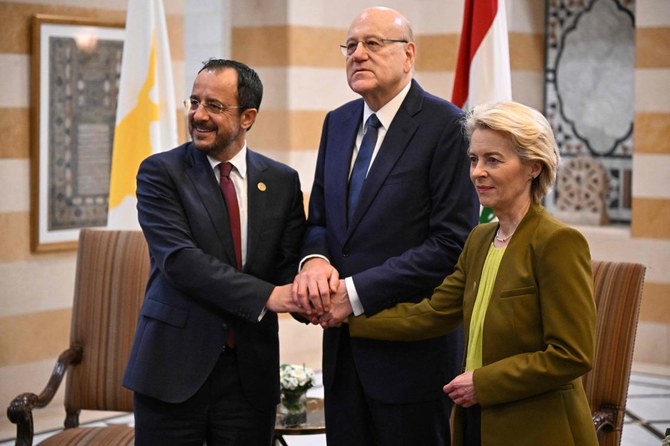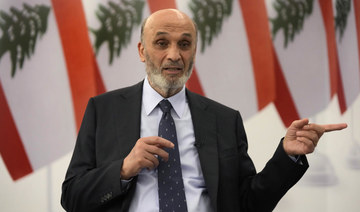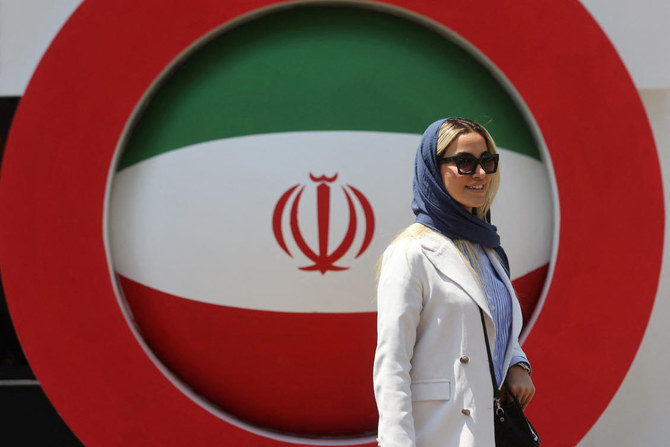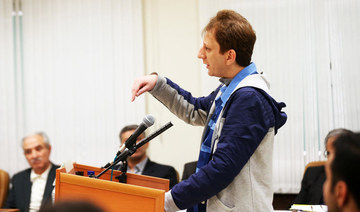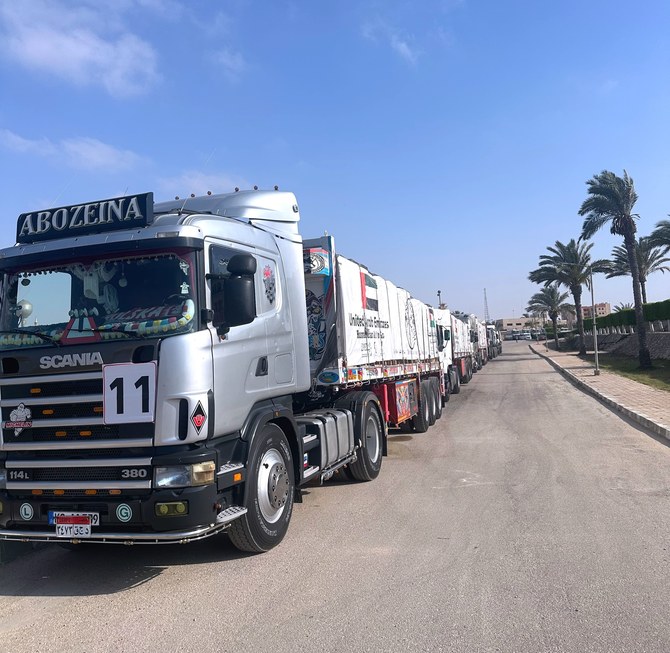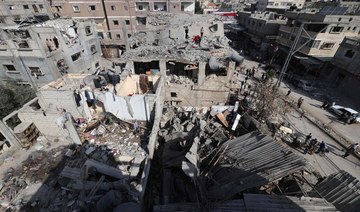TEHRAN/VIENNA: The UN’s atomic watchdog has called an emergency crisis meeting to discuss Iran’s growing expansion of its nuclear program.
Tehran has already breached the 300 kg limit for stockpiles of enriched uranium under the 2015 nuclear deal, the Joint Comprehensive Plan of Action (JCPOA), and a senior aide to Supreme Leader Ali Khamenei threatened on Saturday to further boost its uranium enrichment.
The process “will increase as much as needed for our peaceful activities,” international affairs adviser Ali Akbar Velayati said. “For the Bushehr nuclear reactor we need 5 percent enrichment.”
The 2015 deal capped Iran’s enrichment maximum at 3.67 percent, sufficient for power generation but far below the 90 percent level required for a nuclear weapon.
Bushehr, Iran’s only nuclear power station, currently runs on imported fuel from Russia that is closely monitored by the UN’s International Atomic Energy Agency (IAEA).
Increasing enrichment closer to weapons-grade was “unanimously agreed upon by every component of the establishment,” Velayati said.
“We will show reaction exponentially as much as they violate it. We reduce our commitments as much as they reduce it. If they go back to fulfilling their commitments, we will do so as well.”
HIGHLIGHT
Analysts say Iran’s breaches so far mean little in terms of developing a nuclear weapon, but are ‘nuclear blackmail’ to pressure the other signatories to the JCPOA into helping Iran to avoid US economic sanctions.
The emergency meeting of the IAEA’s board of governors on Wednesday was requested by Ambassador Jackie Wolcott, the US representative to the IAEA and other international organizations in Vienna.
The US mission in Vienna described as “concerning” the IAEA’s latest report on Iran’s compliance with the JCPOA, confirming that Tehran had exceeded the permitted stockpile of enriched uranium.
“The international community must hold Iran’s regime accountable,” the US mission said.
Analysts say Iran’s breaches so far mean little in terms of developing a nuclear weapon, but are “nuclear blackmail” to pressure the other signatories to the JCPOA into helping Iran to avoid US economic sanctions.
However, a larger stockpile of enriched uranium combined with increased enrichment levels narrows the one-year window experts believe Iran would need to have enough material to build a nuclear bomb if it chose to do so.
“This would be a very worrisome step that could substantially shorten the time Iran would need to produce the material needed for nuclear weapons,” said Miles Pomper, a senior fellow at the Middlebury Institute of International Studies’ James Marin Center for Nonproliferation Studies.
“Both Iran and the Trump administration should be looking for ways to de-escalate the crisis, rather than exacerbate it.”



